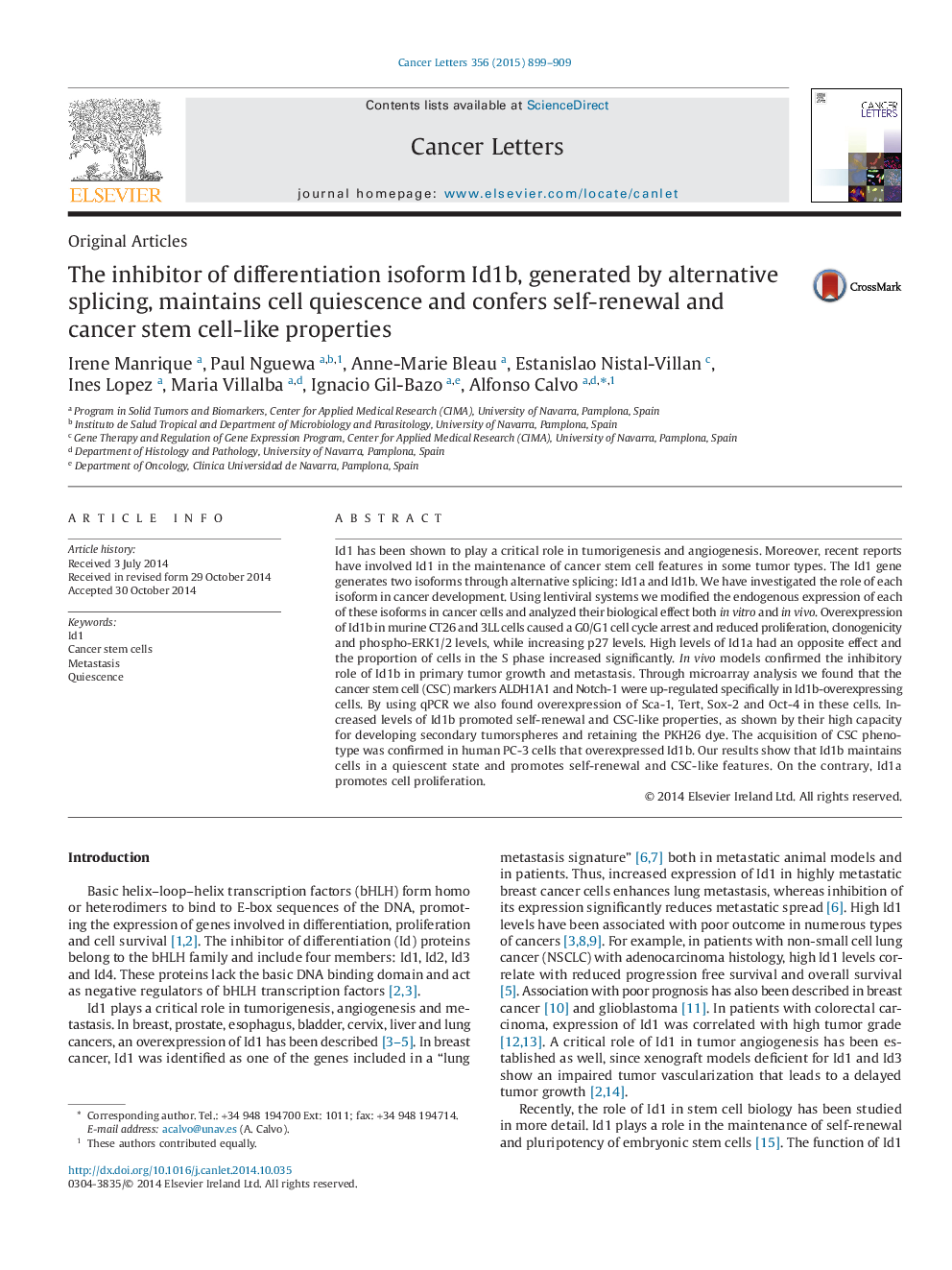| Article ID | Journal | Published Year | Pages | File Type |
|---|---|---|---|---|
| 10899729 | Cancer Letters | 2015 | 11 Pages |
Abstract
Id1 has been shown to play a critical role in tumorigenesis and angiogenesis. Moreover, recent reports have involved Id1 in the maintenance of cancer stem cell features in some tumor types. The Id1 gene generates two isoforms through alternative splicing: Id1a and Id1b. We have investigated the role of each isoform in cancer development. Using lentiviral systems we modified the endogenous expression of each of these isoforms in cancer cells and analyzed their biological effect both in vitro and in vivo. Overexpression of Id1b in murine CT26 and 3LL cells caused a G0/G1 cell cycle arrest and reduced proliferation, clonogenicity and phospho-ERK1/2 levels, while increasing p27 levels. High levels of Id1a had an opposite effect and the proportion of cells in the S phase increased significantly. In vivo models confirmed the inhibitory role of Id1b in primary tumor growth and metastasis. Through microarray analysis we found that the cancer stem cell (CSC) markers ALDH1A1 and Notch-1 were up-regulated specifically in Id1b-overexpressing cells. By using qPCR we also found overexpression of Sca-1, Tert, Sox-2 and Oct-4 in these cells. Increased levels of Id1b promoted self-renewal and CSC-like properties, as shown by their high capacity for developing secondary tumorspheres and retaining the PKH26 dye. The acquisition of CSC phenotype was confirmed in human PC-3 cells that overexpressed Id1b. Our results show that Id1b maintains cells in a quiescent state and promotes self-renewal and CSC-like features. On the contrary, Id1a promotes cell proliferation.
Related Topics
Life Sciences
Biochemistry, Genetics and Molecular Biology
Cancer Research
Authors
Irene Manrique, Paul Nguewa, Anne-Marie Bleau, Estanislao Nistal-Villan, Ines Lopez, Maria Villalba, Ignacio Gil-Bazo, Alfonso Calvo,
